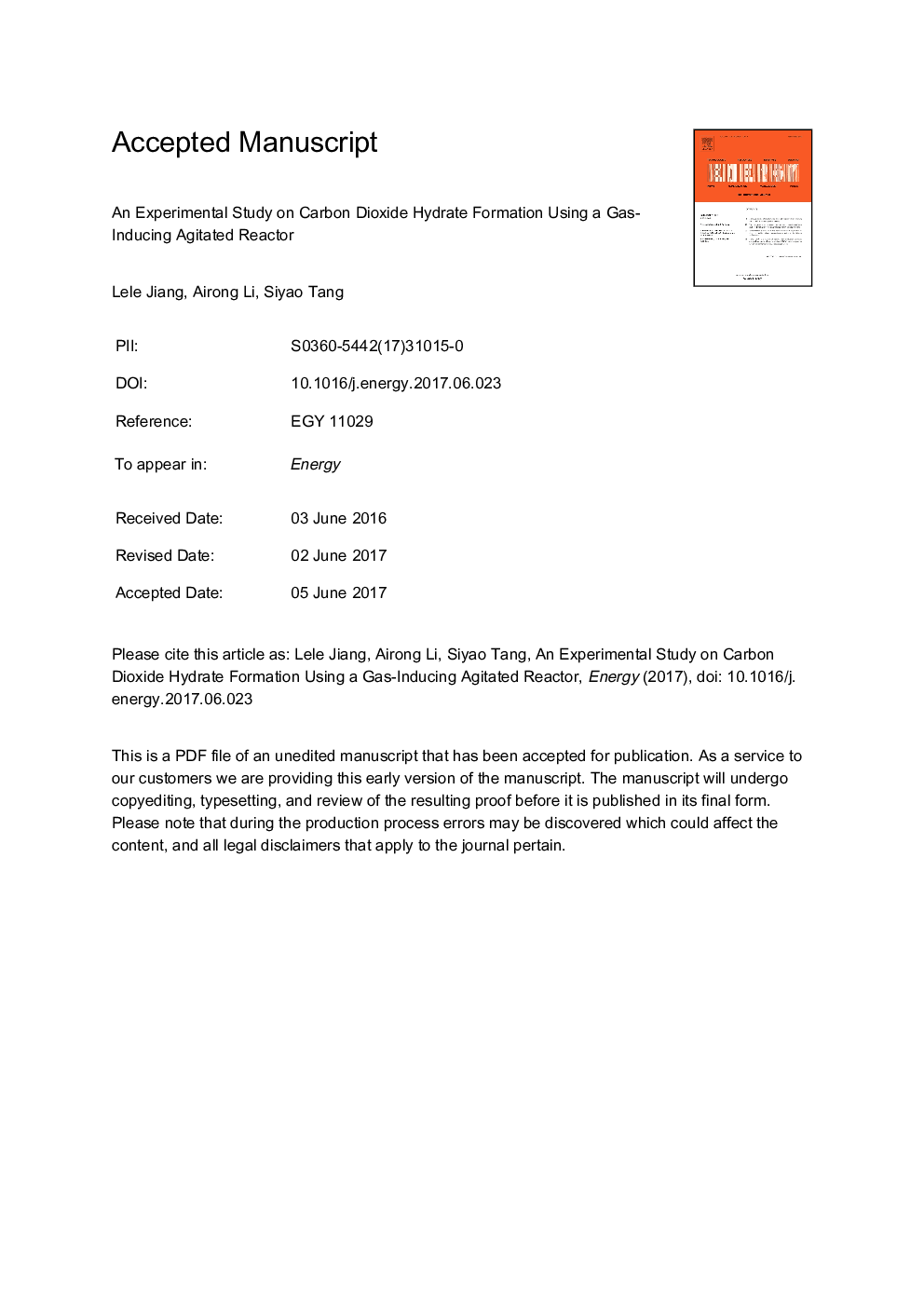| Article ID | Journal | Published Year | Pages | File Type |
|---|---|---|---|---|
| 5475861 | Energy | 2017 | 31 Pages |
Abstract
The capture, storage and transportation technology of carbon dioxide based on hydrate formation is an innovative conception. This work presents an experimental investigation on CO2 hydrate formation as a function of rotation speed (0, 200, 400, 600, 800Â rpm), temperatures (274.15-279.15Â K) and initial pressures (2.09, 3.17, 4.03, 5.04, 6.02Â MPa) by using a gas-inducing agitated reactor. It was found that stable CO2 hydrate formation was efficiently enhanced at the stage of CO2 dissolution and nucleation in the liquid phase by the gas-inducing agitated reactor through mechanical agitation and gas recycle. The induction time was shortened from 261 to 24Â min with an increase of agitation speed. Reactor design is one of the important effects on CO2 hydrate formation. In addition, temperature and initial pressure also have strong effects on CO2 hydrate formation and storage capacity. The induction time of nucleation was greatly reduced with a decrease in cooling temperature and an increase in initial pressure. The amount of CO2 consumed and storage capacity were also increased.
Related Topics
Physical Sciences and Engineering
Energy
Energy (General)
Authors
Airong Li, Lele Jiang, Siyao Tang,
